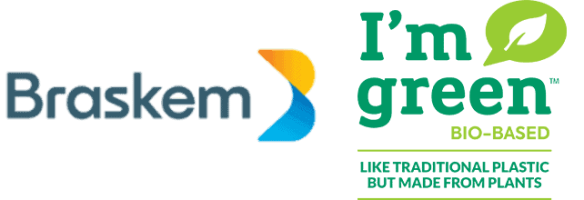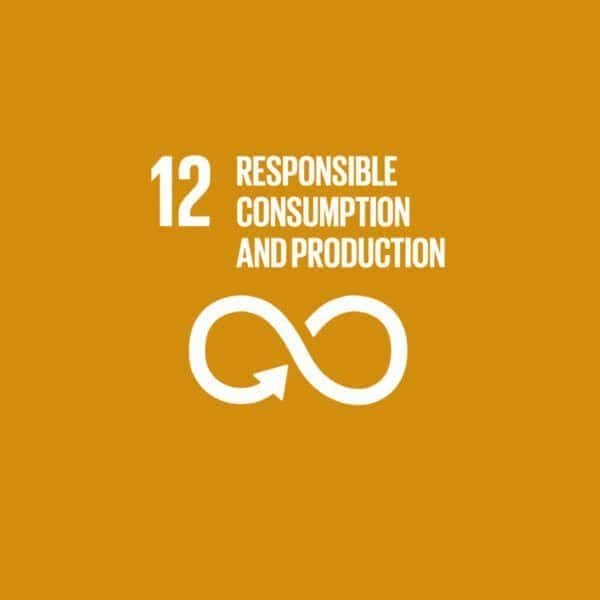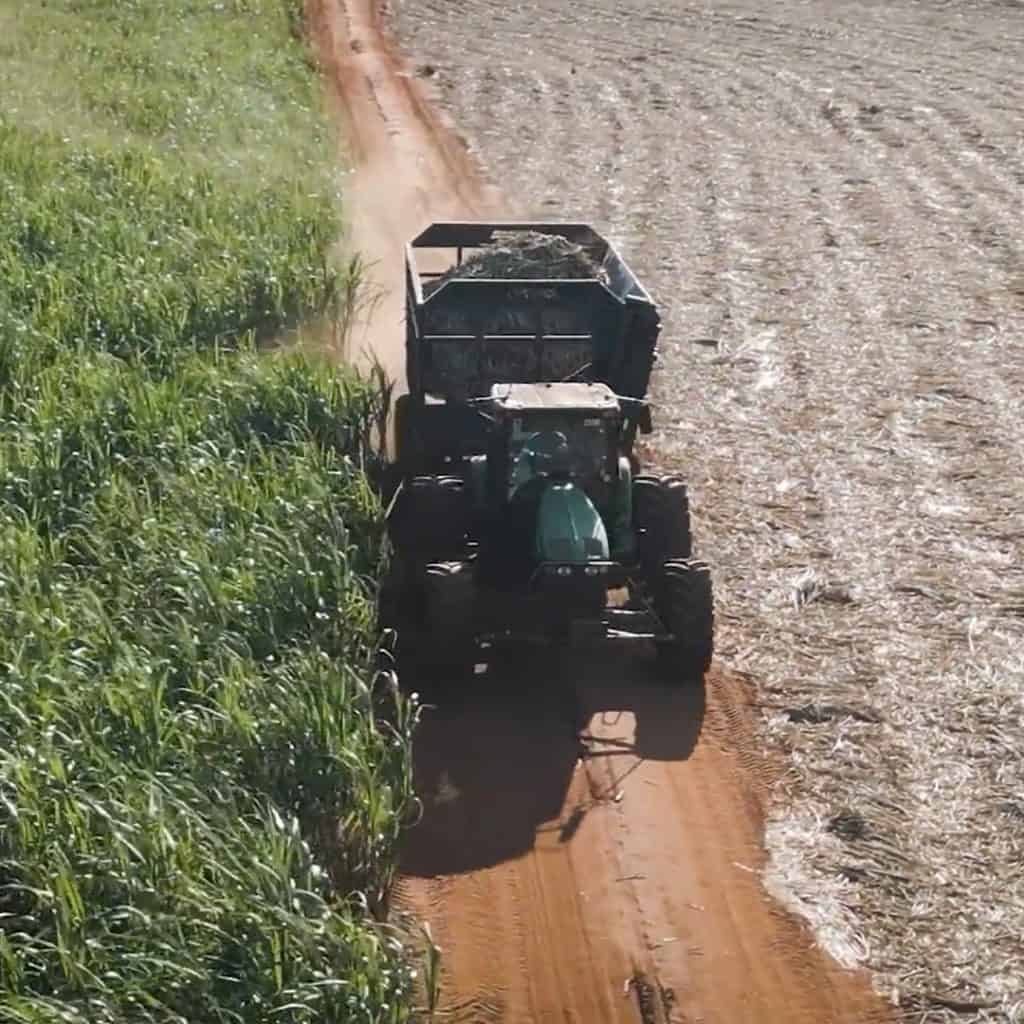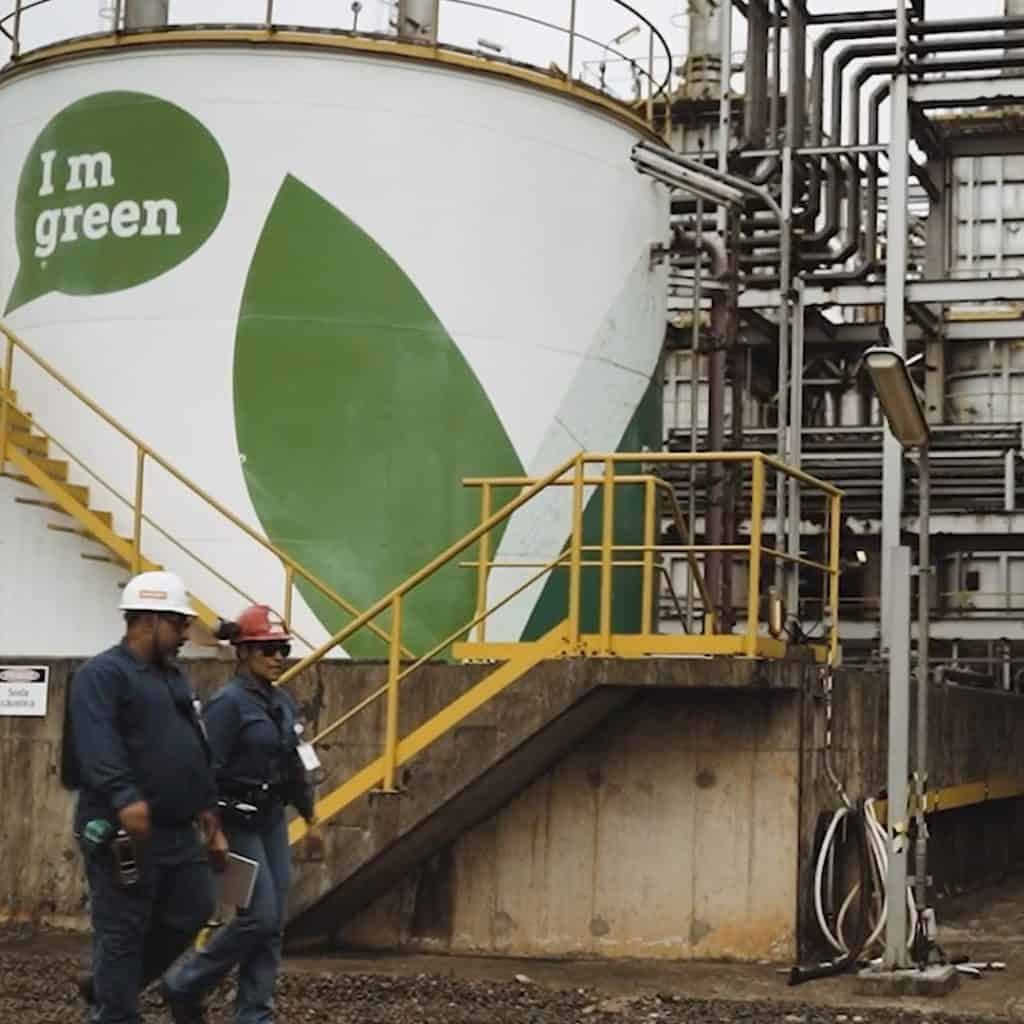
“If we want plastics to be part of a more sustainable future, we need to diversify our solutions now.”

Ensure sustainable consumption and production patterns.
A plastic revolution
The plastics of tomorrow
Braskem is a pioneer in the industrial production of bio-based plastics, cementing its commitment to achieving carbon neutrality in an industry that has historically been reliant solely on fossil fuel feedstock. Founded in 2002 as a petrochemical company, Braskem is now one of the world’s largest producers of thermoplastic resins, or high-performing plastics, and the largest producer of biopolymers in the world. In 2010, the company began making bio-based solutions from sustainably sourced sugarcane, an alternative to the fossil fuel element in plastic production.
Today, Braskem’s bio-based plastics, derived from sugarcane, supply the market with carbon capturing, sustainably sourced materials that we use in our everyday lives. In 2025, Braskem’s bio-based polyethylene, EVA, and wax derived from sugarcane celebrate 15 years of pioneering plastics from sustainably sourced renewable feedstock.
“Imagine plastic made from sugarcane, from a renewable source. This changes the game completely – engineering combined with sustainability,” says Alex Duarte, Commercial Leader at Braskem South America.
Sustainable from start to finish
“If we want plastics to be part of a more sustainable future, we need more recycling, more infrastructure and, importantly, more alternatives to fossil-based solutions,” says Luiza Montoya, Sustainable Development Specialist at Braskem.
Braskem’s bio-based plastics product range, although produced from crushed sugarcane, is chemically identical to its fossil fuel counterparts. And like traditional plastics, it can be made into products such as toys, packaging, containers, films, sports turfs, and other sports accessories. Bio-based plastics are recycled in the same way, too, removing the need for new machinery, and maintaining compatibility with the circularity efforts at the other end of the plastics value chain.
The company’s bio-based plastics don’t just center on lowering the carbon footprint of plastics, they also uphold the values of sustainable production. The leftover biomass from crushed sugarcane generates electricity to power the production process, even producing extra renewable energy that is then sold to the grid. Moreover, any remaining nutrient-rich waste and wastewater from the production process is used to fertilize the sugarcane fields, naturally protecting and nourishing the soil. Every part of the sugarcane is used: for sugar, bioethanol, as a source of energy, and as a fertilizer. Nothing is wasted.

Where in the world?
Braskem is a global company headquartered in São Paulo, Brazil, and operates dozens of industrial facilities, offices, and innovation centers in Europe, Asia, Mexico, and the US. It serves customers in more than 71 countries worldwide.

Responsibly grown
Sugarcane cultivation plays a vital role in the bioeconomy. As the plant grows, it captures CO2 from the atmosphere and stores it in the plant, bioethanol, and then plastic throughout its lifespan. This means each kilogram of Braskem bio-based plastic used prevents approximately five kilograms of CO2 emissions being released into the atmosphere, compared to fossil fuel-based equivalents.
Braskem operates a Responsible Ethanol Sourcing Program throughout its supply chain, requiring its growers to observe strict environmental standards and ethical working practices. In addition, when planted on degraded land, the farming of sugarcane actually contributes to restoring the ground by helping to return carbon to the soil.
What does a sustainable future look like?
Braskem’s reimagining of plastics manufacturing is in alignment with SDG 12, which aims to ensure sustainable consumption and production patterns. “The leftovers from sugarcane milling are used to generate energy for the plant facility itself. The excess energy further contributes to sustainability … and the bioethanol is produced entirely from a renewable source, which absorbs more carbon than it emits throughout the entire production process,” says Duarte. “We know we have a long way to go to make plastics fit for a sustainable future, but I’m proud that at Braskem we’re showing there is a way forward, and our bio-based plastics are just the start.”
Did you know?
Since Braskem began producing bio-based plastics in 2010, it is estimated to have saved around seven million tonnes of carbon emissions. That’s approximately 80,000 round-trip Airbus A320 flights from Paris to London!